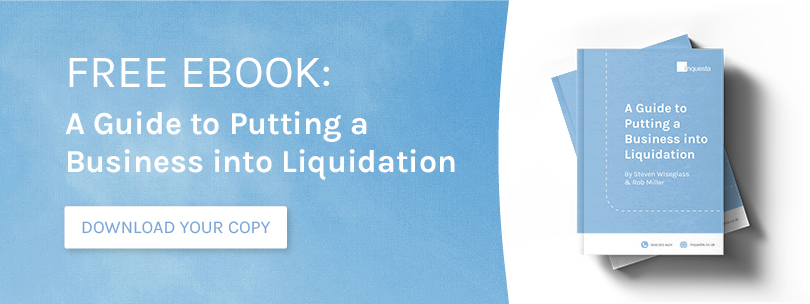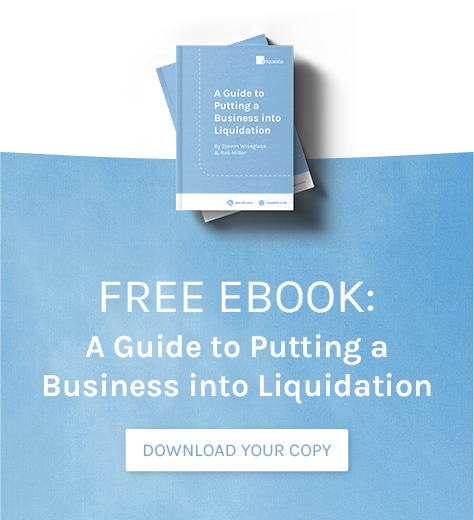Being issued a statutory demand is a stressful time for any business owner — with potential legal fees and the threat of liquidation looming, it can be difficult to know where to turn.
However, understanding the intricacies surrounding what constitutes a genuine dispute of a statutory demand could afford you an additional lifeline to ensure the continued survival of your business.
How to Define a Statutory Demand
A statutory demand is a form of final written warning sent from a creditor to their debtor. It acts to encourage the business to either pay their debt, or form some kind of arrangement for repayment. Failure to adhere to this will likely be grounds for the creditor to present a petition for bankruptcy/winding up to the courts.
The threshold for a creditor to be eligible to issue a statutory demand is when they are owed above £5000 by an individual, or above £750 from a business.
Once the demand has been issued, you only have 18 days to attempt to bring the situation to an amicable end. Failure to act will often lead to a winding up petition being issued, advertised in the London Gazette, bank accounts being frozen, and finally, the liquidation of your company.
But what options are open to you should you receive a statutory demand?
What to do if you Receive a Statutory Demand
If you receive a statutory demand, there are a few things you must remember.
- Be proactive: The most important thing you must do is not ignore the issue. Failure to deal with the situation will not make it go away. All that is likely to happen is that matters will escalate and the creditor will apply for liquidation.
- Pay in Full: If you have the finances available, and you accept that the amount of debt is correct, the easiest way to deal with any statutory demand would be to pay it in full as soon as possible.
- Make an Agreement: It is possible that, if you are proactive and engage with the creditor, they may be open to negotiation. Your debt could be paid in reduced instalments, or should the situation demand it, an asset could also be used as security.
- Dispute: If you feel that any aspect of the demand is up for debate, it is possible that you can challenge it, and have the demand ‘set aside’ (within 18 days of it being served).
Regardless of your situation, it is always recommended that you contact a licensed insolvency professional should you ever receive a statutory demand. They will be able to assess your situation and provide expert guidance on which option is best going forward.
Should you decide to dispute a statutory demand, there are a few important things you should be sure to bear in mind.
Reasons for Disputing a Statutory Demand
There are various valid reasons for disputing a statutory demand — from discrepancies with the amount owed, issues with how it was served, or question marks over the validity of the grounds it was issued. However, it is important that you only dispute the demand if you have sufficient grounds. False disputes can lead to further problems for your business.
Dispute Over the Amount
Should the amount claimed within a statutory demand be disputed for any reason, the debtor must immediately provide evidence to the creditor.
A key benefit of this is that liquidation proceedings cannot be taken against a disputed debt. A dispute is also common grounds by which a statutory demand can be set aside by the court.
The purpose of setting aside as a result of an inflated amount is to stop creditors from attempting to force debtors into paying more than they actually owe. If there is only a very minor discrepancy with the amount in the demand and the actual amount, the demand will likely remain in place.
Not Served Correctly
It is vital that the creditors carry out the process of serving the statutory demand correctly. An incorrectly served demand is grounds for the demand being set aside, and the creditor may be deemed liable for any legal costs incurred.

Issues with the Creditor
Should the creditor hold security, or owe the debtor at least the same amount of money being demanded, it is possible for a counterclaim to be issued which could lead to money changing hands from the initial creditor to the debtor, not the other way around.
Insufficient Grounds
It is common for debtors to have an agreement in place with their creditor whereby they agree to repay the debt over time rather than a flat fee upfront.
It has been known, for example, that if the financial situation worsens for the creditor and they feel that the agreement should no longer be valid, that they will issue a statutory demand anyway. This would be seen as a valid cause for the demand being set aside.
How to Set Aside a Statutory Demand
When it comes to determining exactly how to set aside a statutory demand, there are three things to consider; correctly filling in forms, ensuring you apply on time, and the hearing itself. Errors at any of these stages will likely result in the demand not being set aside, and could lead to the situation worsening.
It is recommended that to protect your best interests, you contact an insolvency practitioner at this stage to oversee the application to have the statutory demand set aside, and ensure that all procedure is followed to the letter.
For more information on how to set aside a statutory demand, view our blog on the subject.
What Happens if a Statutory Demand is Set Aside?
If the debtor is successful, and the statutory demand is set aside, then the creditor will likely be expected to pay any court fees and the situation will be seen as resolved. However, company directors should not lose sight of why the demand was initially issued. Is the company solvent? Is a restructure still needed?
The success of having a statutory demand set aside does not resolve the issues a business may have been experiencing. It is more likely to merely delay them.

Regardless of the outcome of the hearing, it would be wise for you to contact a specialist to enter your business, assess the situation, and advise you on the key next steps.
How Inquesta Can Help with a Statutory Demand
Inquesta’s team of debt specialists boast decades of experience guiding businesses in all manner of financial situations and industries through the statutory demand process.
We’ve been here before, we appreciate how stressful being issued a demand can be, and we know exactly what it takes to get through.
For additional information on how Inquesta can help guide you through the situation and come out of the other side strong and sustainable, contact a member of our team today or request a no-obligation consultation.



